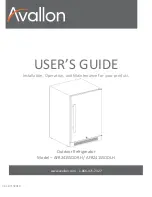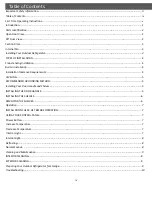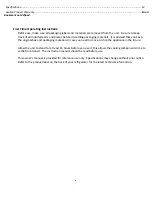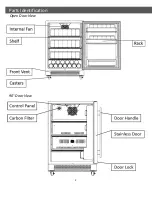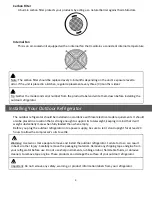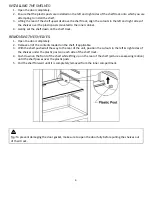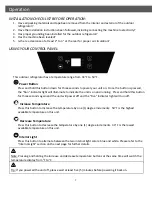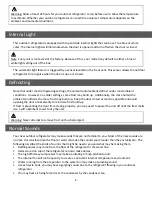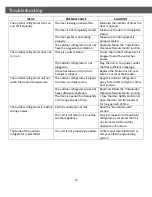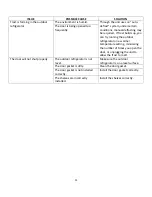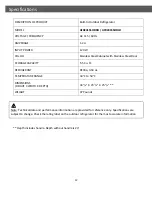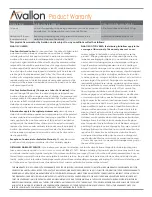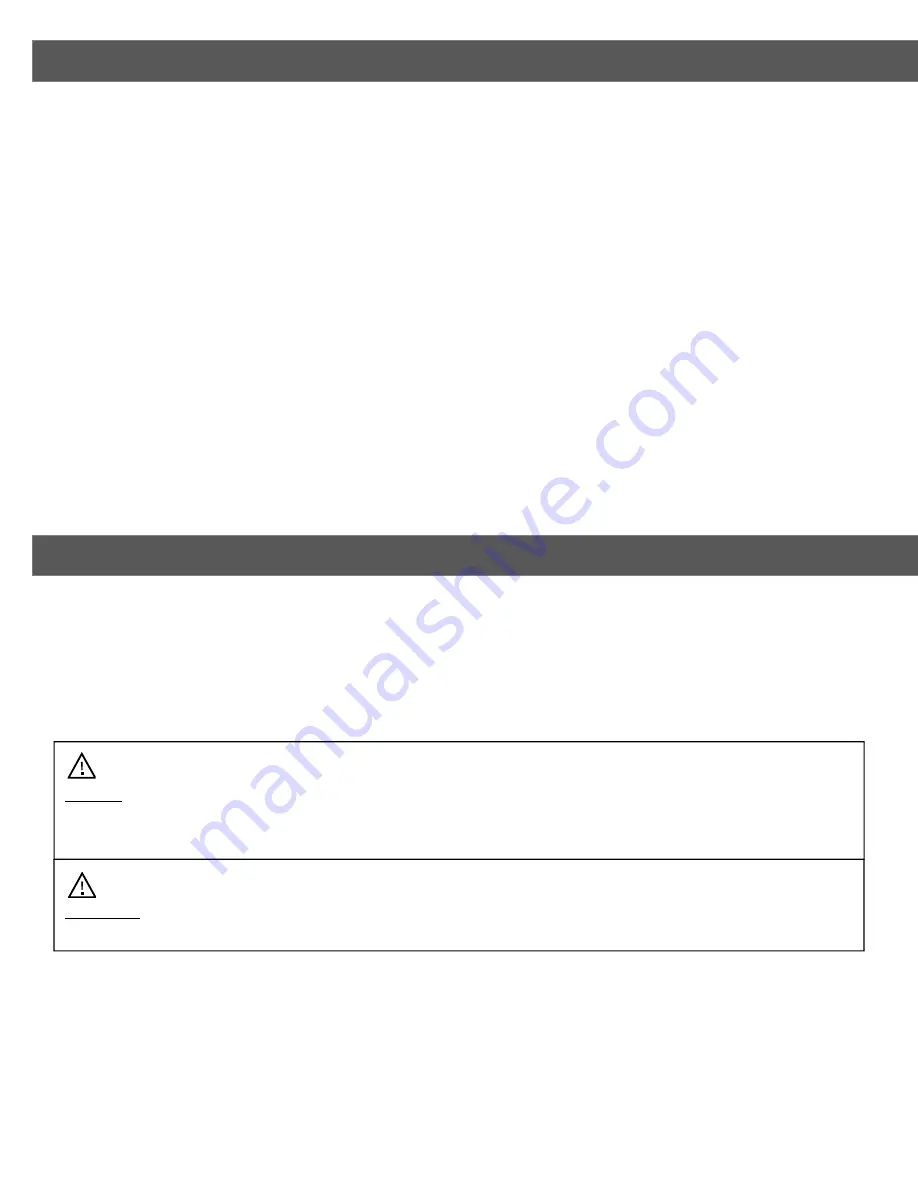
9
Cleaning and Maintenance
Periodic cleaning and proper maintenance will ensure efficiency, top performance, and long life.
INTERIOR CLEANING:
1.
Disconnect power to the unit.
2.
Open the door and remove the contents and shelves.
3.
Wait until the unit defrosts.
4.
With a clean cloth, wipe down the interior of the unit.
5.
Reinsert the shelves and contents.
6.
Reconnect power to the unit.
EXTERIOR CLEANING:
The door and cabinet may be cleaned with a mild detergent and lukewarm water solution such as two (2)
tablespoons of baking soda to one (1) quart of water. Do not use solvent based or abrasive cleaners. Use a
soft sponge and rinse with clean water. Wipe with a soft clean towel to prevent water spotting. If the door
panel is stainless steel, it can discolor when exposed to chlorine gas and moisture. Clean stainless steel with
a cloth dampened with a mild detergent and warm water solution. Never use an abrasive or caustic cleaning
agent.
Preparing Your Outdoor Refrigerator for Storage
If the outdoor refrigerator will not be used for a long time, or is to be moved to another place, it will be
necessary to defrost the unit and dry the interior.
1.
Disconnect the outdoor refrigerator from the power supply by removing the power plug from the wall
socket.
2.
Leave the door open to allow for air circulation and to prevent mold, mildew, and unpleasant smells.
3.
Once the interior is dry and clean the unit will be ready for storage.
Important: Do NOT touch the power plug when your hands are wet. NEVER unplug the unit by pulling the
plug.
Caution: Store the unit out of the reach of children. If you have children, you may want to take additional
precautions such as removing the door to prevent a child from being trapped inside the outdoor
refrigerator.

